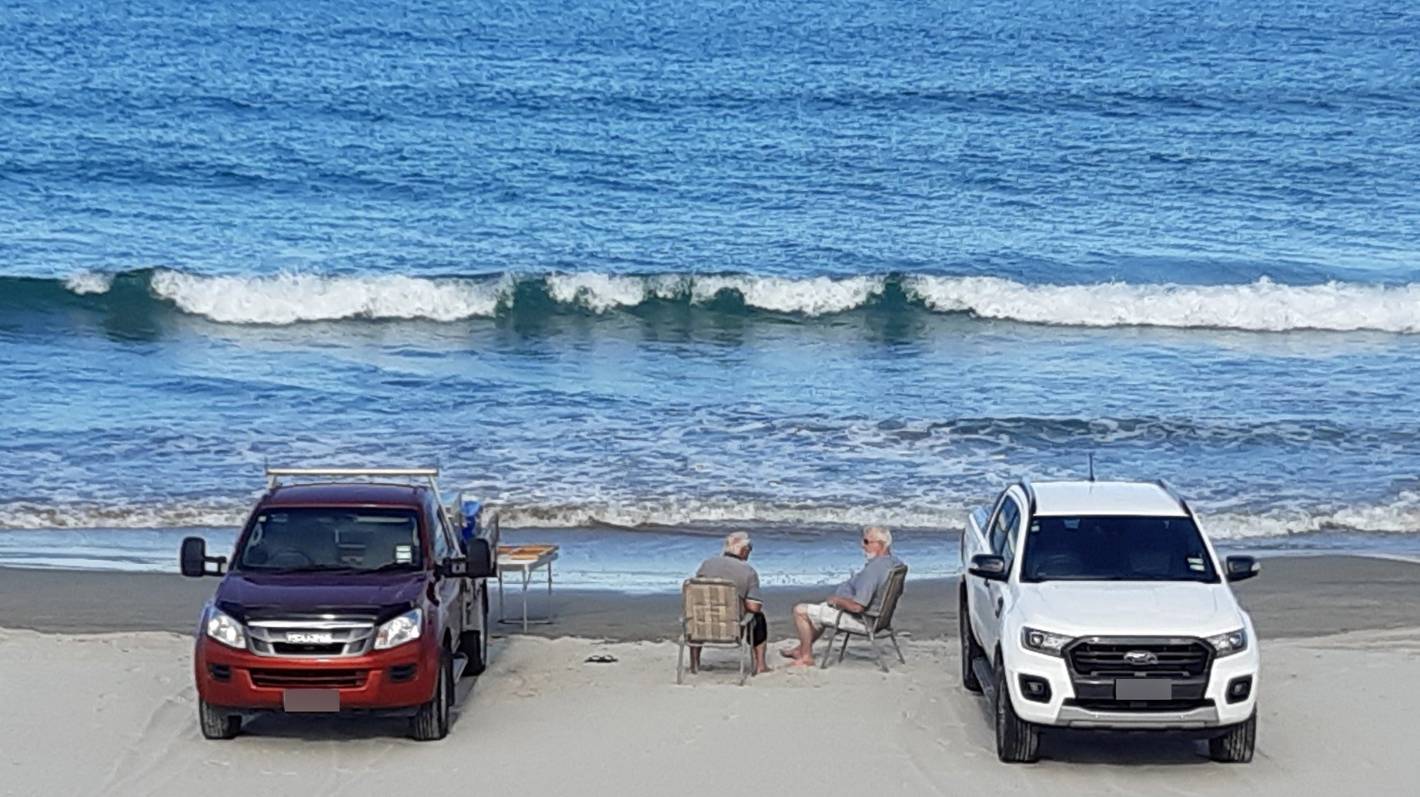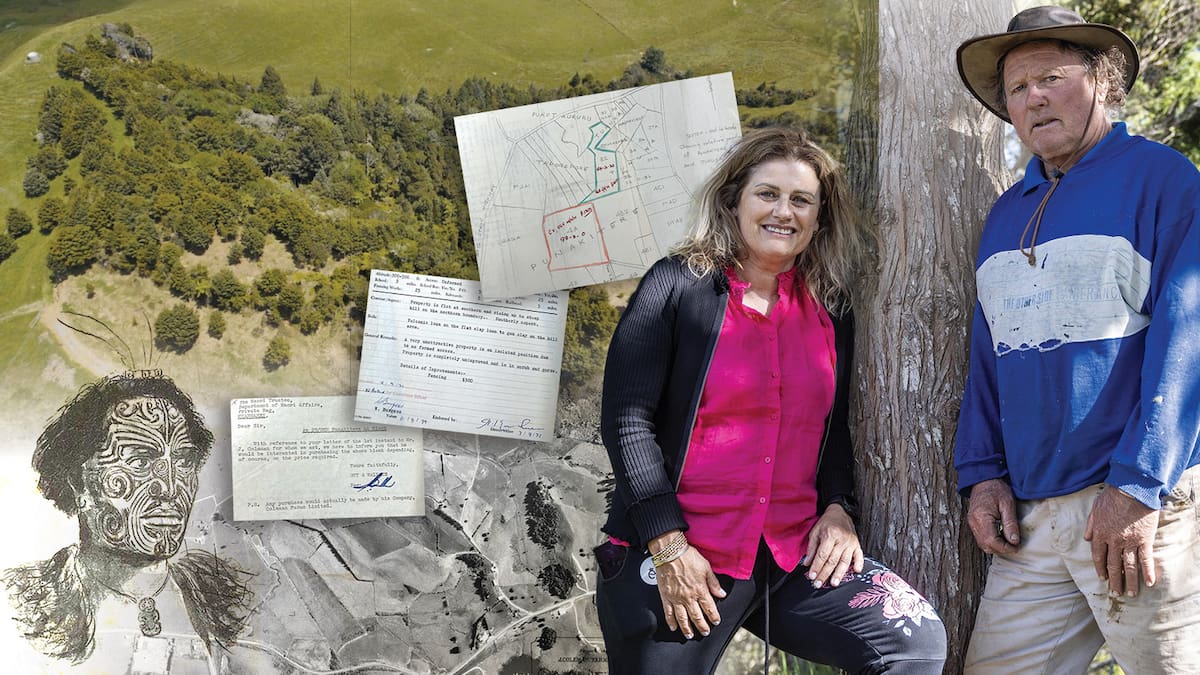Supplied
Many retired people and people with mobility restrictions enjoy getting out on the beach at Waipū for a fish, locals say.
A small Northland community is divided over whether vehicles should continue to drive on a beach increasingly popular with four-wheel-drivers from as far afield as Auckland.
The access at Tip Rd in Waipū gives unrestricted access to the beach, allowing people to drive to kilometres of white, sandy beach for fishing and recreation.
But the site is also used by some to illegally drive through the nearby Waipū Wildlife Reserve, one of just four sites where the critically endangered fairy tern nests, among other rare birds.
The Waipū Residents and Ratepayers Association has been running consultation on the issue and will hold a meeting on Wednesday evening.
READ MORE:
* Successful breeding season for NZ’s rarest bird, the tara iti/fairy tern
* Here’s where Kiwis went to this summer, and where they didn’t
* Vehicles to be banned from Northland’s most expensive beach
Marilyn Cox, the association secretary and spokesperson for Bream Bay Coast Care Trust, said she favours an outright ban of vehicles on the beach to help protect the environment.
At the very least, she wants to see better protection for the reserve and summer holiday restrictions in front of Uretiti campground – the most popular Department of Conservation camp in the country.
Darren Markin/Supplied
Tara iti/New Zealand fairy tern are critically endangered and the Waipū Wildlife Reserve is one of just four places where they regularly breed. (File photo)
Vehicles are banned from driving through the reserve but signs on the dunes are often not seen or ignored, she said.
Volunteers trying to protect the nest over the summer breeding season have even faced aggression from motorists, she said.
As well as damage to the reserve, vehicles have damaged sand dunes – needed as a protection against sea level rise and climate change, Cox said.
But many locals believe careful use of vehicles on the beach is an important part of life and they do not want to see a ban, Gabrielle “Gabi” Kinnell said.
Supplied
The beach access at Tip Rd in Waipū is popular with those who have difficulty accessing the beach, but conservationists fear vehicles are ruining the environment.
The vehicle access is often used by people fishing – who would struggle to carry all their fishing gear down the beach, she said.
“Most people using the beach are sensible and careful.
“My partner’s retired – him and his mates have worked long and hard, and enjoy their fishing now and do no harm to anybody.”
The vehicle access is especially important for people with disabilities and mobility issues, who can have improved mental health just by driving along the beach, Kinnell said.
She acknowledged people driving through the wildlife reserve was an issue, but thought the issues could be addressed by better signs and proper fencing.
Kinnell organised a petition objecting to the proposed ban, signed by 120 people.
The Tip Rd vehicle access is across a Department of Conservation reserve but was established many years before the area was made a reserve, media and communications advisor Abigail Monteith said.
DOC is investigating the issues around vehicle access but it is a complex matter with many different groups involved, she said.
RICKY WILSON/STUFF
Watch Department of Conservation staff return critically endangered fairy tern eggs to their nest after a storm in Mangawhai during the 2020 breeding season.
“We see benefit in protecting areas where biodiversity is at greatest risk from vehicles.”
Monteith said the department was disappointed with vehicles recently driving through the wildlife reserve and is investigating options for legal action.
Monteith said DOC was unlikely to support a controlled access, such as a gate where certain people had a key.
Such a scheme has been put in place at Auckland’s Muriwai Beach, where drivers have to pay about $200 for yearly access.
Whangārei deputy mayor Phil Halse will chair the meeting and believes there could be a resolution with speed and area restrictions, which have been respected further north at Ruakaka.
He did not think the community, nor DOC, would approve of a full vehicle ban.
“Northlanders love their beach.”



